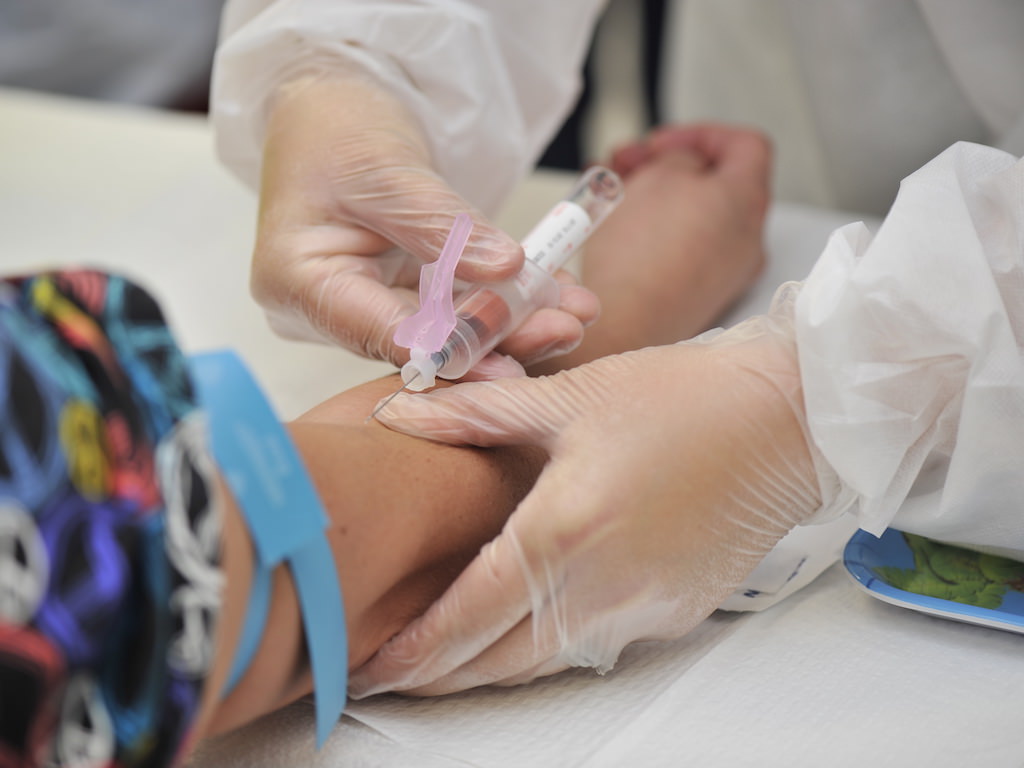 Are you interested in a career in phlebotomy? It may be the perfect career choice for you! We have come up with what we think are some of the important daily tasks and things to consider as you think about becoming a phlebotomist.
Are you interested in a career in phlebotomy? It may be the perfect career choice for you! We have come up with what we think are some of the important daily tasks and things to consider as you think about becoming a phlebotomist.
First of all, it’s necessary to let you know that if needles scare you, a phlebotomy career may not be the best fit for you. In fact, that is a large part of the job! In fact, the word phlebotomy actually means “the act or practice of opening a vein for letting or drawing blood as a therapeutic or diagnostic measure.” So it’s important that you are comfortable with needles and blood and able to follow strict procedures and processes to ensure success.
I’m fine with needles, now what?
It’s great that you are comfortable with needles as much of the clinical aspect of your job will include pricking fingers or entering through a vein (venipuncture) to collect blood samples. Depending on the type of location that you work in, you may also be asked to verify patient information as well.
Also important to remember is that, although glancing at a needle doesn’t immediately send *you* into a panic, many people are afraid of needles. Some are even prone to battling intense anxiety or fainting when faced with getting blood drawn. When you are called on to get lab work from a patient, they may be very nervous or afraid. You must be able to remain calm, professional, and convey a sense of confidence.
What characteristics are important for phlebotomists?
Keep in mind that a large part of your job causes your patients minor pain and potentially anxiety. So, it’s necessary to be compassionate and patient while still being efficient and getting the job done quickly and well – you have other patients to see!
Attention to detail is very important as you are putting together and organizing vials, slides, and tubes and making sure they are labeled correctly and make it to the right place.
Focus and practice go hand in hand in your phlebotomy career. You must be able to focus on what you’re doing, keeping your hands and the needle steady, all while the patient may or may not be cooperating. Even the best phlebotomists only get better with practice, and the same will likely be true of you! As you practice, you will likely improve at finding the best vein to draw blood from, and your dexterity will also more than likely continuously get better.
How can I become a phlebotomist?
Although phlebotomists really only draw blood, there are other training programs and positions that include phlebotomy training among other things, increasing your skill set and potentially making you more marketable across the board. One such avenue is a Medical Assistant training program. As a Medical Assistant student at Ross Medical Education Center, you will receive phlebotomy training in the classroom. However, you will also be instructed on a variety of other areas such as medical terminology, medical office procedures, anatomy and physiology, and a variety of other clinical and administrative tasks and procedures. Upon completion of the program, graduates should be prepared to work in many different settings and positions, including as a phlebotomist.
